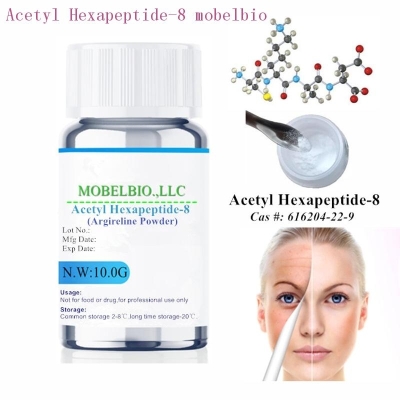FDA warns artemisinin or reheats it with black box under common antimalarial drugs
-
Last Update: 2013-08-02
-
Source: Internet
-
Author: User
Search more information of high quality chemicals, good prices and reliable suppliers, visit
www.echemi.com
Recently, the U.S Food and Drug Administration (FDA) informed the public to pay attention to the recently updated "black box warning" about the antimalarial drug mefloquine hydrochloride: Taking the drug may cause mental or neurological side effects It is reported that the FDA's "black box warning" is one of the highest levels of potential risks of drugs At present, FDA has revised the prescription information of the drug, increased the content that may induce side effects in nervous system and spirit, so as to provide corresponding medication guidance for patients Possible neurological side effects include dizziness, body imbalance, or tinnitus Mental side effects include anxiety, paranoia, depression or hallucinations Malaria is a common disease in the tropics and subtropics China is a country suffering from malaria People suffering from malaria will have periodic high fever and shivering symptoms, so it is also known as playing The ancients in China called malaria "smoke malaria" and believed that the floating fog caused people to be poisoned In 1880, Charles laverang, a French doctor working in Algeria, discovered a single-cell parasite in the human body of malaria and determined that it was the direct cause of malaria, which was caused by Plasmodium For this reason, he won the Nobel Prize in physiology or medicine in 1907 In 1897, British doctor Ronald rose proved that malaria was transmitted to people by mosquitoes For this reason, he won the Nobel Prize in physiology or medicine in 1902 These two findings have laid the foundation for the human fight against malaria The first drug to treat malaria was quinine, a drug taken from the bark of the cinchona tree In 1934, scientists synthesized chloroquine, one of the malaria specific drugs, but it was put on hold for at least ten years because of its toxic and side effects Until the Second World War, clinical trials conducted in the United States showed that a very effective antimalarial drug was actually introduced into clinical practice in 1947 to prevent and treat malaria Unfortunately, a number of Plasmodium species resistant to chloroquine have emerged In the sixties and seventies of the last century, in the extremely difficult environment of scientific research, Tu youyou's team, in cooperation with other domestic institutions, through arduous efforts and inspiration from the classical literature of traditional Chinese medicine such as the elbow reserve emergency prescription, pioneered the discovery of artemisinin and created a new method of malaria treatment At present, artemisinin based compound drugs have become the standard treatment program for malaria The World Health Organization lists artemisinin and related drugs in its "essential drugs" list Artemisinin is characterized by rapid inhibition of protozoa maturation In vitro experiments showed that artemisinin could inhibit the growth of Plasmodium falciparum clone and had direct killing effect Moreover, artemisinin is 1.13-1.16 times more effective than chloroquine It was found that among the antimalarial effects of artemisinin, artemether and artesunate sodium, artesunate sodium had the best antimalarial effect, 16 times of chloroquine and 14.3 times of artemisinin The antimalarial effect of artesunate and artesunate was similar to that of chloroquine Although artemisinin can also induce resistance of Plasmodium, it is much slower than chloroquine Artemisinin's strong antimalarial properties have benefited hundreds of millions of people around the world In 2011, Tu youyou of the Chinese Academy of traditional Chinese medicine won the tulasck prize for clinical medicine The reason for the award is that "artemisinin, a drug used to treat malaria, has saved millions of lives in the world, especially in developing countries." This is also the world-class top prize that China's biomedical industry has won so far Artemisinin was once highly praised after it was internationally recognized The FDA's "black box warning" of mefloquine hydrochloride may cause a "artemisinin boom" again.
This article is an English version of an article which is originally in the Chinese language on echemi.com and is provided for information purposes only.
This website makes no representation or warranty of any kind, either expressed or implied, as to the accuracy, completeness ownership or reliability of
the article or any translations thereof. If you have any concerns or complaints relating to the article, please send an email, providing a detailed
description of the concern or complaint, to
service@echemi.com. A staff member will contact you within 5 working days. Once verified, infringing content
will be removed immediately.







